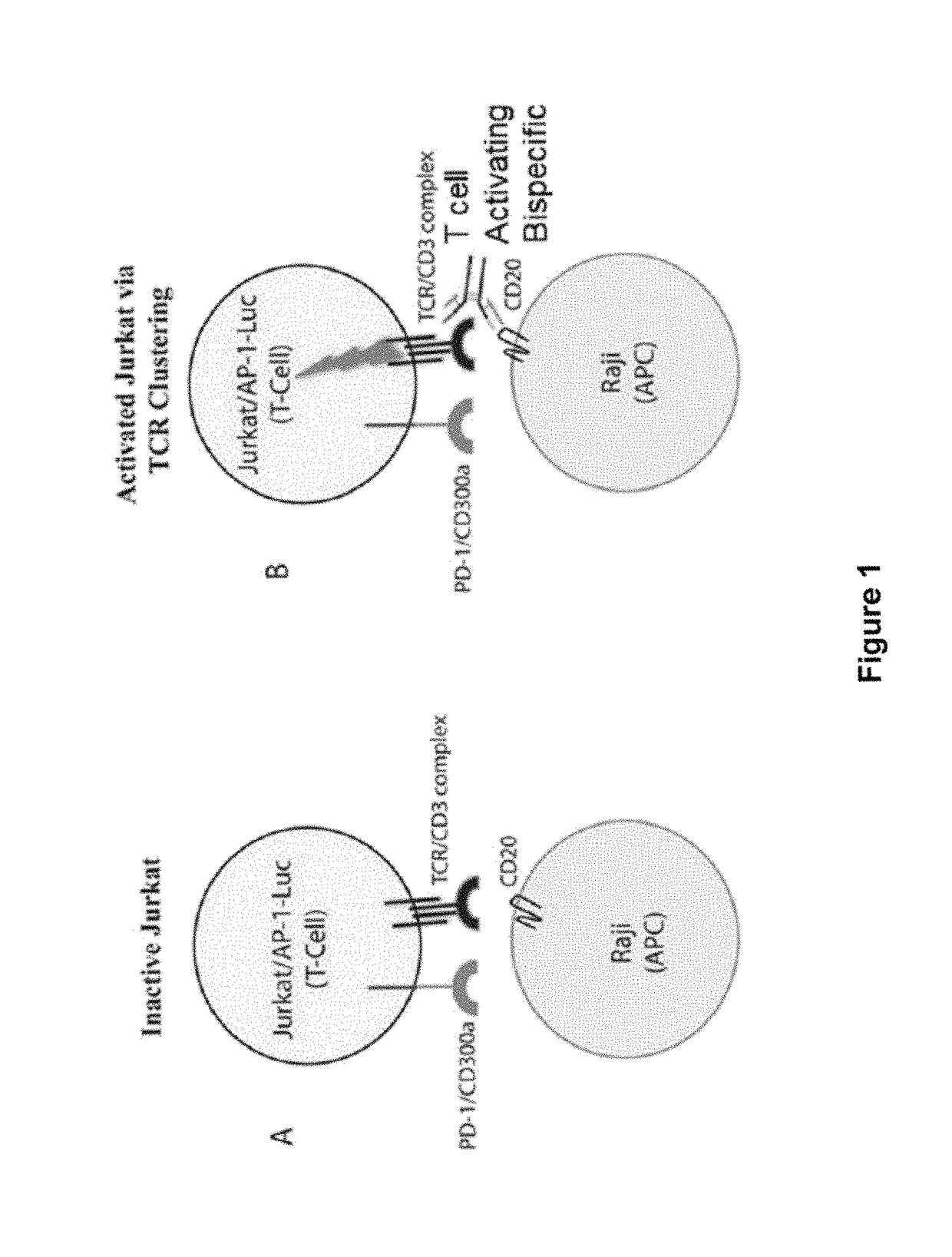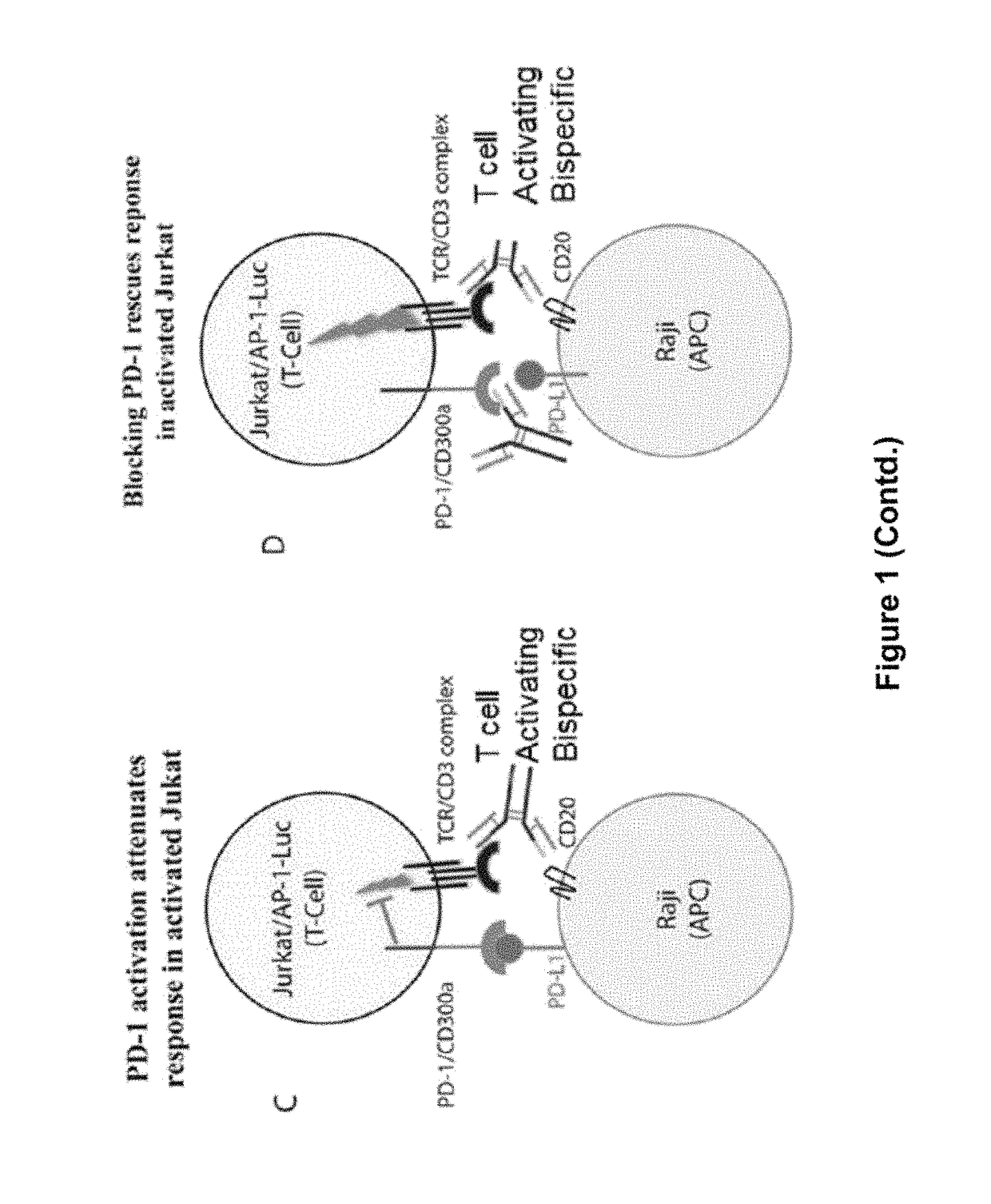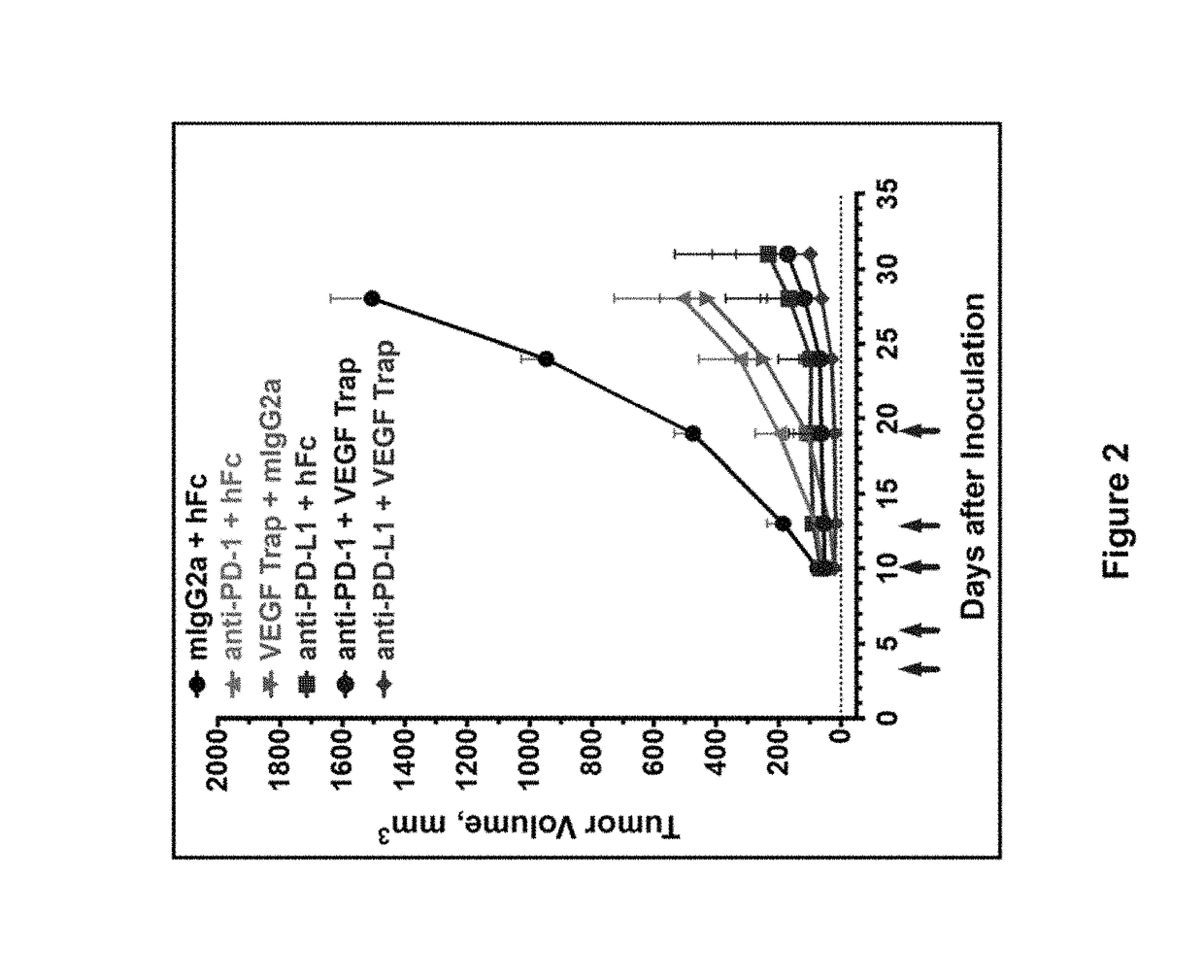Human antibodies to PD-1
a technology of human antibodies and pd-1, which is applied in the field of human antibodies and antigen-binding fragments of human antibodies, can solve the problems of reducing t-cell proliferation and cytokine secretion, increasing the death of tumor-specific t-cells, and compromising humoral and cellular immune responses. it can save t-cell signaling, suppress tumor growth, and increase survival
- Summary
- Abstract
- Description
- Claims
- Application Information
AI Technical Summary
Benefits of technology
Problems solved by technology
Method used
Image
Examples
example 1
n of Human Antibodies to PD-1
[0197]Human antibodies to PD-1 were generated using a fragment of PD-1 that ranges from about amino acids 25-170 of GenBank Accession NP_005009.2 (SEQ ID NO: 327) with a C93S change. The immunogen was administered directly, with an adjuvant to stimulate the immune response, to a VELOCIMMUNE® mouse comprising DNA encoding human Immunoglobulin heavy and kappa light chain variable regions. The antibody immune response was monitored by a PD-1-specific immunoassay. When a desired immune response was achieved splenocytes were harvested and fused with mouse myeloma cells to preserve their viability and form hybridoma cell lines. The hybridoma cell lines were screened and selected to identify cell lines that produce PD-1-specific antibodies. Using this technique, and the immunogen described above, several anti-PD-1 chimeric antibodies (i.e., antibodies possessing human variable domains and mouse constant domains) were obtained; exemplary antibodies generated in ...
example 2
Light Chain Variable Region Amino Acid and Nucleotide Sequences
[0200]Table 1 sets forth the amino acid sequence identifiers of the heavy and light chain variable regions and CDRs of selected anti-PD-1 antibodies of the invention. The corresponding nucleic acid sequence identifiers are set forth in Table 2.
[0201]
TABLE 1Amino Acid Sequence IdentifiersAntibodySEQ ID NOs:DesignationHCVRHCDR1HCDR2HCDR3LCVRLCDR1LCDR2LCDR3H1M7789N246810121416H1M7799N1820222426283032H1M7800N3436384042444648H2M7780N5052545658606264H2M7788N6668707274767880H2M7790N8284868890929496H2M7791N98100102104106108110112H2M7794N114116118120122124126128H2M7795N130132134136138140142144H2M7796N146148150152154156158160H2M7798N162164166168170172174176H4H9019P178180182184186188190192H4xH9034P2194196198200202204206208H4xH9035P2210212214216202204206208H4xH9037P2218220222224202204206208H4xH9045P2226228230232202204206208H4xH9048P2234236238240202204206208H4H9057P2242244246248202204206208H4H9068P2250252254256202204206208H4xH9119P22...
example 3
Binding to PD-1 as Determined by Surface Plasmon Resonance
[0207]Binding association and dissociation rate constants (ka and kd, respectively), equilibrium dissociation constants and dissociation half-lives (KD and t1 / 2, respectively) for antigen binding to purified anti-PD1 antibodies were determined using a real-time surface plasmon resonance biosensor assay on a Biacore 4000 or Biacore T200 instrument. The Biacore sensor surface was derivatized with either a polyclonal rabbit anti-mouse antibody (GE, #BR-1008-38) or with a monoclonal mouse anti-human Fc antibody (GE, #BR-1008-39) to capture approximately 100-900 RUs of anti-PD-1 monoclonal antibodies, expressed with either a mouse Fc or a human Fc, respectively. The PD-1 reagents tested for binding to the anti-PD-1 antibodies included recombinant human PD-1 expressed with a C-terminal myc-myc-hexahistidine tag (hPD-1-MMH; SEQ ID NO: 321), recombinant cynomolgus monkey PD-1 expressed with a C-terminal myc-myc-hexahistidine tag (MfP...
PUM
| Property | Measurement | Unit |
|---|---|---|
| binding dissociation equilibrium constant | aaaaa | aaaaa |
| equilibrium dissociation constant | aaaaa | aaaaa |
| temperature | aaaaa | aaaaa |
Abstract
Description
Claims
Application Information
 Login to View More
Login to View More - R&D
- Intellectual Property
- Life Sciences
- Materials
- Tech Scout
- Unparalleled Data Quality
- Higher Quality Content
- 60% Fewer Hallucinations
Browse by: Latest US Patents, China's latest patents, Technical Efficacy Thesaurus, Application Domain, Technology Topic, Popular Technical Reports.
© 2025 PatSnap. All rights reserved.Legal|Privacy policy|Modern Slavery Act Transparency Statement|Sitemap|About US| Contact US: help@patsnap.com



